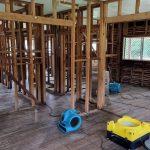When undertaking a drywall installation project, it’s crucial to explore a variety of techniques and strategies that can significantly improve the efficiency and quality of the process. Whether you are planning to upgrade a room or completely replace the existing drywall, having a thorough understanding of the necessary steps is vital to achieving a successful outcome. Before hiring a handyman, educating yourself about several key considerations can help avert potential pitfalls. This includes verifying the handyman’s licensing credentials, comprehending the cost of drywall installation, and selecting a qualified professional whose skills align with your specific project requirements and expectations.
Essential Steps to Obtain a Handyman’s License for Professional Drywall Installation
For individuals looking to break into the drywall installation industry, securing a handyman’s license should be among your top priorities. While this credential isn’t mandated in every state, many states do require it to ensure compliance with local regulations. To determine if you need a license, start by thoroughly researching the specific licensing requirements that apply in your state. This knowledge will help you navigate the process more effectively and ensure you are operating within legal parameters.
In many jurisdictions, minor tasks such as painting or performing small appliance repairs may not necessitate a handyman’s license. However, for larger projects involving drywall installation or significant renovations, you may be required to obtain separate licenses depending on local laws and regulations. Understanding these nuances will help you prepare for your installation project and avoid unnecessary complications.
In addition to obtaining a handyman’s license, acquiring adequate insurance is crucial for your protection. A contractor’s liability and property damage insurance policy serves as a safeguard against any injuries or damages that might occur during the project. If your plans involve hiring workers, it is essential to secure workers’ compensation insurance as well. Conducting a detailed review of construction plans will enable you to accurately estimate material and labor costs, allowing you to submit competitive bids while ensuring quality standards are met.
When you apply for a handyman’s license specifically for drywall installation, certain prerequisites must be fulfilled. For example, in Georgia, applicants must pass trade, business, and law examinations. Additionally, having a minimum of two years of practical experience as a handyman and providing proof of general liability and workers’ compensation insurance is mandatory. If your projects are expected to exceed $1,000 or involve securing construction permits across multiple jurisdictions, such as in Hawaii, you will also be required to hold a general contractor’s license to operate legally.
Although a handyman’s license for drywall installation isn’t universally required, it is strongly recommended if you plan to engage in more extensive work beyond simple repairs and installations. Each state has its unique requirements, but they generally involve having liability insurance and a handyman’s license to safeguard against possible legal issues and property damage claims that may arise during your work.
To succeed as a handyman, it is essential to familiarize yourself with the diverse standards and licensing requirements across different states. Significant discrepancies often exist at the local level regarding handyman licenses, necessitating thorough research if you aim to handle various projects with skill and efficiency.
Understanding the Factors Influencing Drywall Installation Costs
The total cost of drywall installation is influenced by a myriad of factors, including the scope of the project and the types of materials used. For instance, larger holes typically necessitate full drywall replacement, significantly impacting the overall expense. Moreover, the quantity of materials required directly correlates with both material and labor costs, making it essential to accurately assess the size and complexity of the job at hand. A skilled handyman can often complete smaller tasks within just a few hours, making it a practical option for many homeowners.
On the other hand, extensive drywall repairs due to substantial holes or water damage require more time and effort. In severe cases, it may become necessary to remove and replace entire sections of drywall, which often calls for the expertise of a professional with specialized skills, potentially leading to increased overall costs for the project.
Effective planning and preparation are vital when it comes to drywall installation. A comprehensive checklist of supplies and tools is necessary, with the overall cost heavily dependent on both the size of the area and the complexity of the job. Handymen often require additional labor support for larger projects, which can further influence costs. Additionally, installation expenses may vary based on whether prep work and cleanup are included in the project scope. Complicated ceiling designs or numerous corners can also lead to increased material and labor expenses, highlighting the need for meticulous planning.
The type of drywall chosen will also significantly affect the total installation cost. Standard drywall is commonly utilized in most commercial constructions and comes in a variety of widths and thicknesses, allowing for flexibility and choice based on specific project requirements.
As the scale of tasks escalates, expenses can accumulate rapidly. The overall cost is largely contingent upon the project’s size and intricacy. Smaller jobs may display a higher cost per square foot, yet drywall remains a more economical option compared to other construction materials, offering a balance between quality and affordability.
While hiring a handyman might seem like a cost-effective choice, employing the services of a drywall specialist can provide substantial advantages. Specialists bring the necessary expertise required for various tasks, from removing popcorn ceilings to constructing drop ceilings. Their experience with taping joints and applying textures ensures a higher quality of workmanship. Moreover, they are proficient in managing issues such as water damage, hole repairs, and intricate texturing.
When selecting a drywall contractor, it is essential to obtain a detailed contract that clearly outlines the project scope and associated costs. This contract should specify the number of drywall sheets needed, the type of materials to be utilized, and a comprehensive breakdown of labor and material expenses, ensuring transparency and clarity throughout the project.
Essential Questions to Ask When Choosing the Right Handyman for Your Drywall Projects
Before making a commitment to a handyman for your drywall installation needs, it’s crucial to ask several important questions to ensure you are making a well-informed decision. Start by inquiring about the estimated timeline for completing the project. Even highly skilled drywall installers may have differing schedules, so understanding the timeframe will help avoid dissatisfaction upon project completion.
It is advisable to interview at least three potential handymen before making a final choice. During these interviews, ask about their relevant experience and request references from past clients. Confirming that the handyman you select possesses the necessary skills and tools for the job is essential to achieving the best possible outcome. Additionally, ensuring that their services fit within your budget is critical for a smooth experience.
Next, evaluate the potential costs associated with drywall installation. By comparing bids from different contractors, you can gain valuable insights into the typical rates for your project. A reputable contractor will provide a comprehensive cost breakdown that includes all materials, supplies, and any additional expenses, giving you a clearer picture of the financial commitment involved in your drywall project.
Verifying credentials and insurance is another pivotal step before hiring a handyman. Obtaining a written contract along with references can provide peace of mind and help you confirm that the handyman is the right fit for your project. Requesting examples of their previous work will bolster your confidence in your decision, ensuring you choose a skilled professional.
An effective handyman should possess a diverse skill set, enabling them to manage a variety of tasks beyond just drywall installation. For instance, if your ceiling has a hole that necessitates drywall work, a proficient handyman should also be capable of handling related tasks, such as installing new light fixtures or repairing popcorn texturing, thereby enhancing the overall efficiency of your home improvement project.
Thoroughly check the handyman’s experience and references before finalizing your choice. An experienced handyman is more likely to execute the job competently, thereby increasing the chances of a successful project outcome. It’s wise to avoid contractors who rely on high-pressure sales tactics or have inflated advertising budgets, as these approaches can often lead to subpar results.
Keep your budget in mind when hiring a handyman for drywall installation. A skilled handyman should be able to complete the job efficiently while respecting your property. They should also prioritize cleanliness, ensuring that the workspace remains tidy after the project is complete, which contributes to your overall satisfaction with the results.
A handyman knowledgeable in plumbing and electrical systems is an excellent choice for addressing leaks or undertaking related tasks. They can also assist with a wide range of projects, including hole repairs, light painting, deck repairs, and drywall installations, providing a well-rounded approach to your home improvement needs.
Finding a reliable handyman in your area is entirely feasible. Investigate online reviews and seek recommendations from friends and family to identify trustworthy professionals. Additionally, don’t hesitate to ask your handyman for client references to validate their reputation and capabilities, ensuring you make the best choice for your project.
The post How Does a Handyman Do Drywall Installation? appeared first on https://gqcentral.co.uk
The Article Drywall Installation Techniques by a Handyman Was Found On https://limitsofstrategy.com
The Article Handyman Tips for Effective Drywall Installation Techniques First Appeared ON
: https://ad4sc.com












Comments are closed